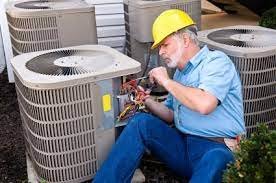Welcome to another insightful discussion here at TheKitchenApplianceDad.com. Today, we are addressing a concern that might have crossed the minds of many homeowners and appliance users: the dangers of leaking refrigerant in appliances like refrigerators and air conditioners. As your go-to expert in kitchen appliances, it’s crucial to understand not just how your appliances work, but also how to maintain them safely. Let’s dive into the world of refrigerants and uncover the risks and safety measures associated with leaks.
Refrigerant is a chemical compound commonly found in the coils of your air conditioners and refrigerators. This substance is key to the cooling process, as it absorbs heat from the interior of your appliance and releases it outside. Common types of refrigerant include chlorofluorocarbons (CFCs), hydrochlorofluorocarbons (HCFCs), and the more environmentally friendly hydrofluorocarbons (HFCs) and hydrocarbons (HCs).
The refrigerant undergoes repeated transitions from a liquid to a gas (and back again) within the appliance circuits. This cycle is crucial for providing the desired cooling effect whether in preserving your food at safe temperatures or maintaining comfortable room temperatures.

When a refrigerator or air conditioner leaks refrigerant, the immediate concern is the potential impact on health. Refrigerants like Freon, a common CFC, can be harmful if inhaled. Exposure to refrigerants can lead to health issues such as:
Refrigerant leaks contribute to environmental damage, particularly in the case of CFCs and HCFCs, which are known to deplete the ozone layer. The global shift toward HFCs and natural refrigerants like propane and isobutane (HCs) aims to reduce this impact, but leaks can still contribute to global warming due to their potential as greenhouse gases.
Detecting a refrigerant leak early can mitigate risks to health and the environment. Here are some signs that your appliance might be leaking refrigerant:
If you suspect that your appliance is leaking refrigerant:
Routine Maintenance: Regular check-ups by a certified professional can help catch potential issues before they lead to leaks. This includes checking for corroded coils or loose fittings and ensuring that the system is functioning efficiently.
Proper Usage and Handling: Follow the manufacturer’s guidelines for operation and maintenance. Avoid placing undue stress on your refrigeration systems, such as overloading circuits or obstructing airflow.
Choose Quality Appliances: Invest in appliances from reputable manufacturers known for quality and sustainability. These units are often designed with better leak prevention and energy efficiency in mind.
Stay Informed: Regulations and recommendations regarding refrigerants are evolving as we seek to balance effective cooling with environmental safety. Staying updated can help you make informed decisions about appliance maintenance and replacements.
By understanding the risks associated with refrigerant leaks and taking proactive steps to prevent them, you can ensure the safety of your household and contribute to environmental conservation. Remember, the key to managing appliances safely is vigilance and timely intervention. As always, stay tuned to TheKitchenApplianceDad.com for more insights and advice on keeping your kitchen safe and efficient. Happy, safe cooling to all!

